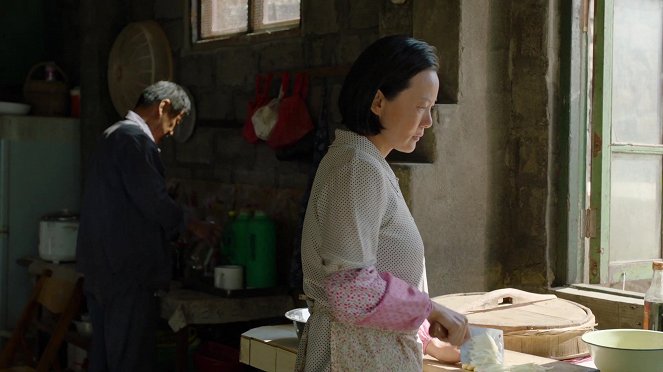Ohjaus:
Xiaoshuai WangKuvaus:
Hyeon-seok KimSävellys:
Yingda DongNäyttelijät:
Jingchun Wang, Mei Yong, Xi Qi, Roy Wang, Jiang Du, Liya Ai, Cheng Xu, Jingjing Li, Yanguozhang Zhao, Zhenjiang Bao, Shuang Wu, Zizi Wang, Xinyuan Zhang (lisää)Suoratoistopalvelut (1)
Juonikuvaukset(1)
‘We’re waiting to grow old’. This sentence briefly sums up Yaoyun and his wife Liyun’s bitter realisation about their lives. They were once a happy family – until their son drowned playing by a reservoir. And so Yaojun and Liyun leave their home and plunge into the big city, although nobody knows them there and they cannot even understand the local dialect. Their adopted son Liu Xing does not offer them the comfort they had hoped for either. Defiantly rejecting his ‘foreign’ parents, he one day disappears altogether. The married couple are repeatedly enmeshed in their memories. Finally, they decide to return to the site of their lost hopes. In this family saga spanning three decades of Chinese history, the private and the political merge and the individual gets caught up in the gears of a society in the throes of constant change. Part melodrama, part critique of the times, this film takes us from the country’s upheaval in the 1980s following the Cultural Revolution to the prospering turbo-capitalism of the present day. Told in sweeping tableaux, it makes visible the deep scars that lie beneath the surface of an ostensibly unbroken success story. (Berlinale)
(lisää)Arvostelut (2)
With its long runtime and thoroughly developed characters, So Long, My Son is a sweeping yet detailed family fresco into which politics intrudes inconspicuously but with devastating consequences. Despite the seemingly apolitical focus on family relationships, Wang thus continues to critically examine previously taboo topics and the impacts of the decisions taken by the powerful on the lives of Chinese people past and present. It thus exhibits the main characteristics of the works of the so-called "sixth generation" of Chinese filmmakers, among which it ranks. ___ Wang does not serve up a linear narrative, which makes it difficult for us to access the characters’ feelings. He composes the portraits of the two families and their times from non-chronologically arranged fragments. The death of a son is the centrepiece of the narrative, to which the film directly or implicitly returns several times as if to an obsessive thought, thus enriching it with new layers. We repeatedly receive information necessary for the contextualisation of events only ex post from the dialogue or staging, costumes and colour palettes that are specific for the given period. However, the director’s restrained communicativeness does not serve to keep us busy putting together a complex narrative puzzle. Wang’s narrative is intuitive rather than architectural. He does not in any way telegraph flashbacks and flashforwards, as they are not clearly separate segments even for the characters, who always carry their past selves inside themselves. The complex structure, where the narrative repeatedly shifts backwards, the slower pace and the longer reverberation of shots also draw our attention to the motifs of memory, temporality and mortality. The protagonists want to seize, stop and reverse the flow of time. But they cannot “resolve” the past. The last hour of the film, which takes place in only one time plane, is extraordinarily intense thanks to the fact that the narrative finally "settles down". ___ Unlike classic melodramas, So Long, My Son does not express misery by aestheticizing it, but by taking a matter-of-fact and humble approach to it, with the camera always positioned so that the characters’ emotions are not exploited and something remains hidden. 80%
()
Detailed portrayal of characters in the form of a family drama that plays out over several decades in the context of the historical twists and turns in China. In terms of structure, it is the embodiment of “a great novel in film form". Although it lasts three hours, it feels like six, at least. But not in a bad way, because Wang can be so enthralling that at the end of the movie you do not feel “that you have seen something", but “that you have experienced something". And if you leave the cinema with such a feeling, then you will be fine with the film's many shortcomings. And there are quite a few of them; a strong emotional twist in the end, diluted to perhaps twenty-three endings, around half of the running time comprises way too many digressions before it gets back on track. It is not always consistent (paradoxically, the best scene of this intimate film is a speech give to a proletarian crowd, which seems to be from another movie by a different director). The editing is either terribly amateurish or a case of not everyone being able to keep up with the phenomenal central duo.
()

